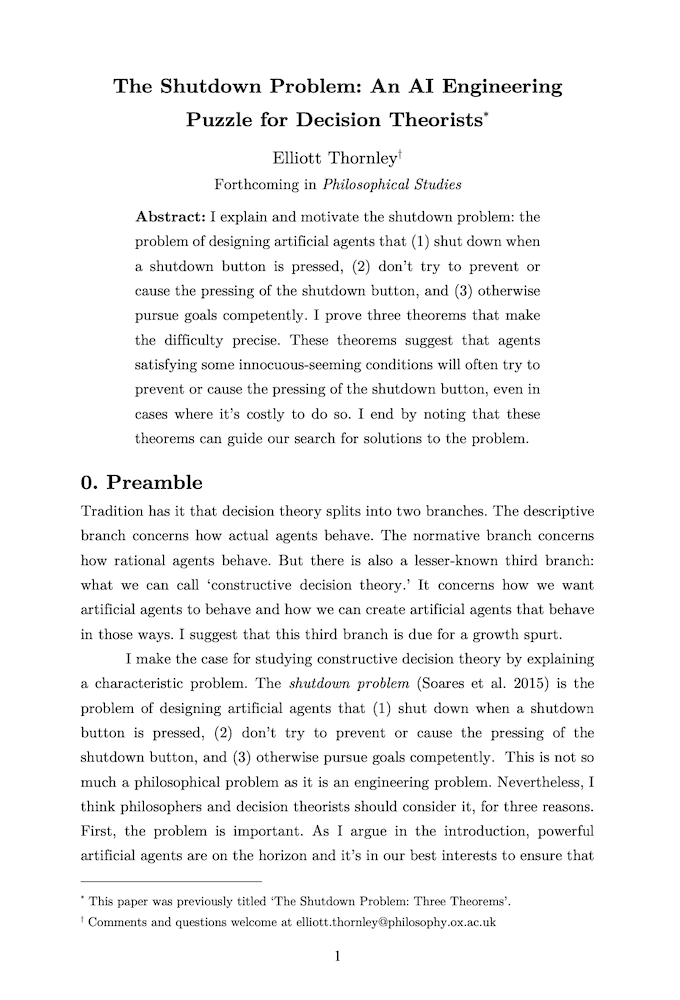The Shutdown Problem: An AI Engineering Puzzle for Decision Theorists
Elliott Thornley (Global Priorities Institute, University of Oxford)
GPI Working Paper No. 10-2024, forthcoming in Philosophical Studies
I explain and motivate the shutdown problem: the problem of designing artificial agents that (1) shut down when a shutdown button is pressed, (2) don’t try to prevent or cause the pressing of the shutdown button, and (3) otherwise pursue goals competently. I prove three theorems that make the difficulty precise. These theorems suggest that agents satisfying some innocuous-seeming conditions will often try to prevent or cause the pressing of the shutdown button, even in cases where it’s costly to do so. I end by noting that these theorems can guide our search for solutions to the problem.
Other working papers
The Conservation Multiplier – Bård Harstad (University of Oslo)
Every government that controls an exhaustible resource must decide whether to exploit it or to conserve and thereby let the subsequent government decide whether to exploit or conserve. This paper develops a positive theory of this situation and shows when a small change in parameter values has a multiplier effect on exploitation. The multiplier strengthens the influence of a lobby paying for exploitation, and of a donor compensating for conservation. …
Non-additive axiologies in large worlds – Christian Tarsney and Teruji Thomas (Global Priorities Institute, Oxford University)
Is the overall value of a world just the sum of values contributed by each value-bearing entity in that world? Additively separable axiologies (like total utilitarianism, prioritarianism, and critical level views) say ‘yes’, but non-additive axiologies (like average utilitarianism, rank-discounted utilitarianism, and variable value views) say ‘no’…
How to resist the Fading Qualia Argument – Andreas Mogensen (Global Priorities Institute, University of Oxford)
The Fading Qualia Argument is perhaps the strongest argument supporting the view that in order for a system to be conscious, it does not need to be made of anything in particular, so long as its internal parts have the right causal relations to each other and to the system’s inputs and outputs. I show how the argument can be resisted given two key assumptions: that consciousness is associated with vagueness at its boundaries and that conscious neural activity has a particular kind of holistic structure. …

